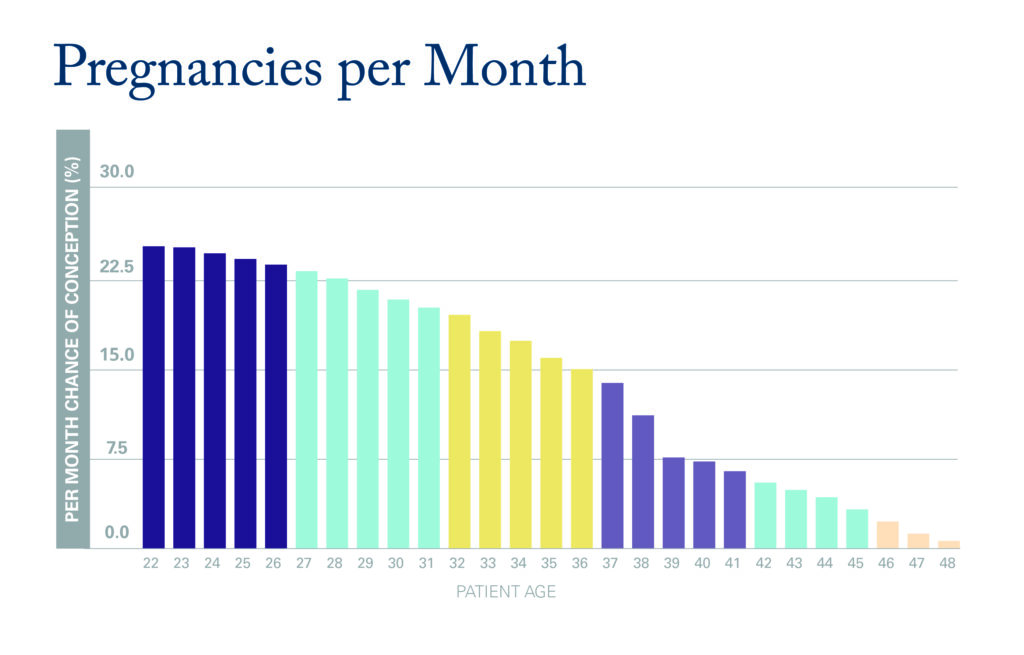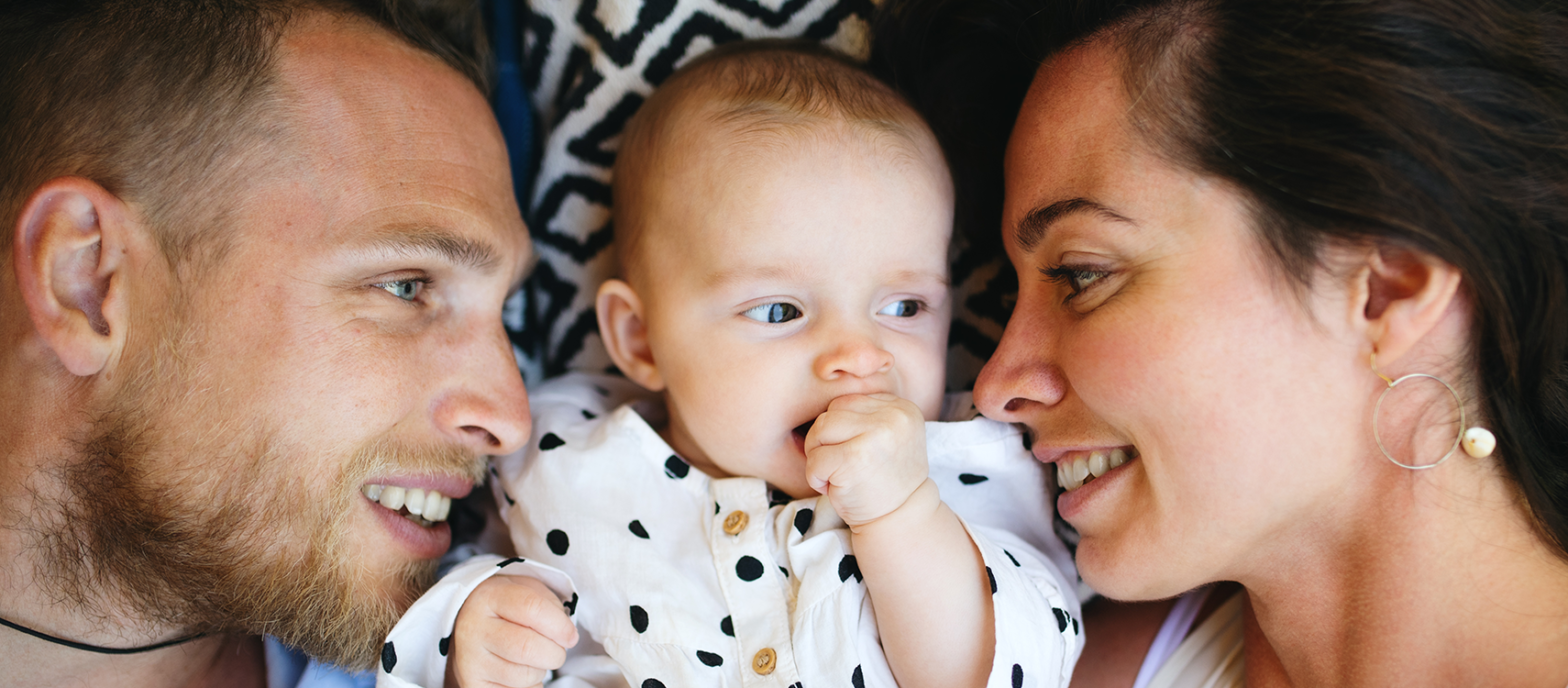Innovations in fertility science have extended the potential for parenthood beyond what we thought possible a generation ago.
If you’re looking to start a family later in life than your parents did, you’ve got plenty of company. As of 2022, the median age of first-time mothers in the United States is 30 years old, a record high. While this shift is driven by a variety of evolving social and economic factors, our biological clocks have unfortunately not changed with the times. Getting to know the potential challenges ahead, as well as the options available for tackling them through modern fertility science, can help you feel more prepared to pursue parenting as a more mature adult.
Will my age keep me from becoming pregnant?
Age-related changes can make conception more difficult, especially for the birthing parent, whose fertility gradually declines throughout their early thirties. A healthy 28-year-old woman has about a 20% chance of becoming pregnant each month; by age 41 this is reduced to 5%. While the exact likelihood of conceiving will vary for each individual, there are some key milestones:
- Obstetricians and gynecologists consider anyone bearing a child beyond their 35th birthday to be of advanced maternal age.
- Menopause typically begins by age 51, after which it is no longer possible to become pregnant without medical intervention.

Maintaining a pregnancy also becomes more challenging with age. Egg quality declines over time, increasing the likelihood of miscarriage. Conditions that raise the risk of pregnancy, such as high blood pressure or gestational diabetes, also become more common beginning at age 35. Even those who have successfully given birth in the past may have more difficulty doing so later in their lives.
As intimidating as all this may sound, fertility experts have developed treatments to mitigate some of the difficulties that come along with carrying a child later in life. Innovations in egg preservation and in vitro fertilization have even made it possible for someone to get pregnant post-menopause.
It’s true that your odds of carrying a baby to term decline with age, as the risk of complications and anomalies increases. But there is cause for hope: Many birth stories that would have seemed impossible a decade ago are now a reality. A consultation with a fertility specialist can help you to evaluate your options and help you decide the next steps for your family planning.
Will my age keep me from getting my partner pregnant?
Age-related fertility difficulties are not exclusive to women, though they do look different in each sex. According to the American Society of Reproductive Medicine, there is no maximum age at which a man can father a child. The most commonly reported reproductive issue among older men, erectile dysfunction, can be remedied with medication prescribed by a general practitioner or urologist. However, sperm morphology and motility generally begin to decline at age 60. Sperm produced later in life have a higher likelihood of chromosomal defects, just as older eggs do. For these reasons, those who plan to father children at an advanced age may consider banking their sperm before the age of 35.
Regardless of age, male infertility is a sometimes overlooked contributor to a couple’s fertility issues. In fact, about 40% of infertility cases involve factors that stem from the fertilizing parent. If you and your partner have been unable to conceive after more than six months of well-timed, unprotected sex, you may benefit from a conversation with a fertility specialist to help you take control of your reproductive health.
